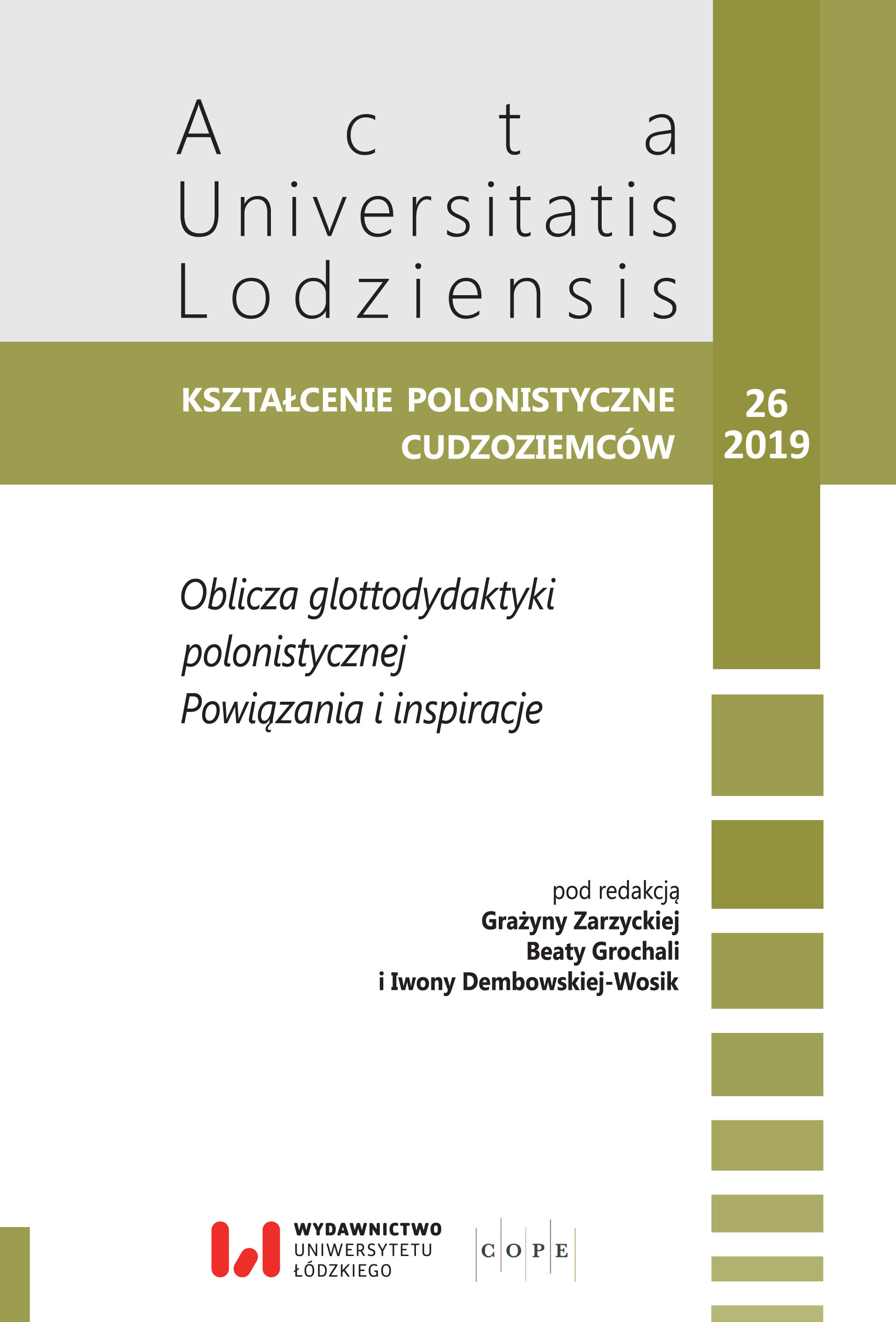What do we call the children? Familial terms of address in Polish and English
DOI:
https://doi.org/10.18778/0860-6587.26.31Keywords:
terms of address, children, cultural scripts, individualism, collectivism, teaching Polish as a foreign languageAbstract
The paper addresses cultural differences between Polish and English as they pertain to familial terms of address. Using corpus data, I demonstrate that Polish parents frequently address their children using hypocoristic forms of the terms syn ‘son’, córka ‘daughter’ and dziecko ‘child’. These forms convey affection and emphasize familial ties. English parents, on the other hand, use children’s names, nicknames, or terms of endearment. I argue that these differences follow from underlying contrasts in cultural scripts: English individualism and Polish warmth.
References
Anstatt T., 2003, Der polnische Vokativ: Aussterbende Kasusform oder produktiv verwendetes Wortbildungsmittel?, “Zeitschrift für Slawistik” 50, pp. 328–347.
Google Scholar
Fernald A., 1985, Four-month-old infants prefer to listen to motherese, “Infant Behavior and Development”, no. 8(2), pp. 181–195.
Google Scholar
Gleitman L. R., Newport E. L. and Gleitman H., 1984, The current status of the motherese hypothesis, “Journal of Child Language”, no. 11, pp. 43–79.
Google Scholar
Hall E. T., 1976, Beyond culture, New York.
Google Scholar
Hock H. H., Joseph B. D., 1996, Language History, Language Change and Language Relationship: An Introduction to Historical and Comparative Linguistics, Berlin.
Google Scholar
Markus H. R., Kitayama S., 1994, The Cultural Construction of Self and Emotion: Implications for Social Behavior, in: S. Kitayama, H. R. Markus (eds.), Emotion and Culture: Empirical Studies of Mutual Influence, Washington D.C., pp. 89–130.
Google Scholar
Matychuk P., 2005, The role of child-directed speech in language acquisition: a case study, “Language Sciences”, no. 27, pp. 301–379.
Google Scholar
Nisbett R. E., 2003, The Geography of Thought: How Asians and Westerners Think Differently... and Why, New York.
Google Scholar
Parrott L. A., 2010, Vocatives and Other Direct Address Forms: A Contrastive Study, in: A. Grønn, I. Marijanovic (eds.), Russian in Contrast, “Oslo Studies in Language”, no. 2, pp. 211–229.
Google Scholar
Pyzik J., 2000, Przygoda z gramatyką: Fleksja i słowotwórstwo imion, Kraków.
Google Scholar
Sun L., 2013, Culture teaching in foreign language teaching, “Theory and Practice in Language Studies”, no. 3(2), pp. 371–375.
Google Scholar
Szymczak M., 1966, Nazwy stopni pokrewieństwa i powinowactwa rodzinnego w historii i dialektach języka polskiego, Warszawa.
Google Scholar
Wierzbicka A., 1992, Semantics, Culture and Cognition: Universal Human Concepts in Culture- Specific Configurations, Oxford.
Google Scholar
Wierzbicka A., 1999, Emotions Across Languages and Cultures: Diversity and Universals, Cambridge.
Google Scholar
Yokoyama O., 1994, Iconic manifestations of interlocutor distance in Russian, “Journal of Pragmatics”, no. 22, pp. 83–102.
Google Scholar
Zaleski J., 1963, Rozwój form wołacza żeńskich rzeczowników osobowych typu Marysia, Anulka, paniusia,“Onomastica”, no. 8, pp. 261–291.
Google Scholar
British National Corpus (BNC) http://www.natcorp.ox.ac.uk/
Google Scholar
The Corpus of Contemporary American English (COCA) http://corpus.byu.edu/coca/ [28.08.2019].
Google Scholar
Narodowy Korpus Języka Polskiego (NKJP) http://nkjp.uni.lodz.pl/index.jsp [28.08.2019].
Google Scholar
Downloads
Published
How to Cite
Issue
Section
License

This work is licensed under a Creative Commons Attribution-NonCommercial-NoDerivatives 4.0 International License.










